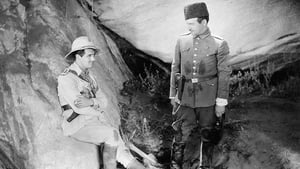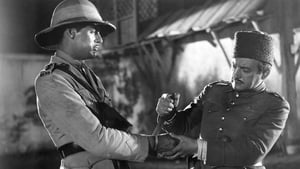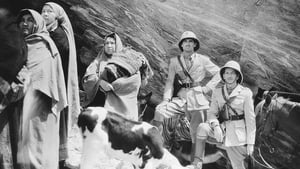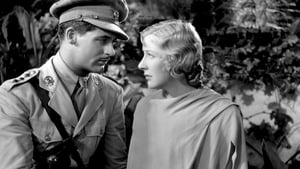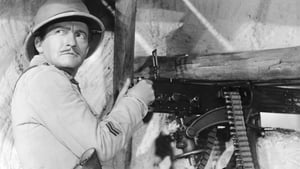Contact: info@alwanfilm.com
Video Sources 0 Views
- The Last Outpost

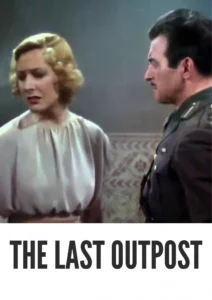
Synopsis
Table of Contents
ToggleReview: The Last Outpost 1935 Colorized – A Classic Adventure in the Sands of Time

Introduction
“The Last Outpost” (1935) is a riveting adventure film that takes audiences on a thrilling journey through the sands of time. In this review, we’ll explore the significance of this classic movie and its enduring appeal to audiences across generations.
Check The Full Colorized Movies List
Check Our Colorized Movies Trailer Channel
Understanding The Last Outpost 1935 Colorized: Director, Cast, and Genre
Directed by Charles Barton and Louis J. Gasnier, “The Last Outpost” (1935) showcases their talent for crafting gripping narratives set against the backdrop of exotic locales and daring escapades. The film features a talented cast, including Cary Grant and Claude Rains, whose dynamic performances bring the story to life with passion and intensity. Blending elements of action, romance, and suspense, “The Last Outpost” (1935) transports viewers to a world of danger and intrigue where survival is the ultimate prize.
Exploring the World of The Last Outpost 1935 Colorized: Plot and Characters
At its core, “The Last Outpost” (1935) follows the exploits of a British soldier, played by Cary Grant, who finds himself stranded in the deserts of Sudan after a harrowing battle with enemy forces. As he struggles to survive in the unforgiving wilderness, he encounters a colorful array of characters, from fierce Bedouin warriors to enigmatic nomads, each with their own agenda and secrets to protect. Along the way, he forms unlikely alliances and confronts his own inner demons as he battles against the odds to find his way home.
The Art of Film Colorization
Film colorization has the power to transform classic movies into timeless works of art, adding depth and dimension to familiar stories and breathing new life into beloved characters. By digitally enhancing the color palette of black and white films, colorization allows viewers to experience the magic of cinema in vibrant hues, capturing the imagination and stirring the soul with its visual splendor.
Early Colored Films: A Brief History
The history of colored films is a testament to the ingenuity and creativity of filmmakers who sought to push the boundaries of visual storytelling. From hand-painted frames to early Technicolor processes, the evolution of colored film has been marked by innovation and experimentation, paving the way for the development of modern colorization techniques that continue to captivate audiences to this day.
The Last Outpost 1935 and Its Early Colored Version
The decision to release “The Last Outpost” (1935) in a colorized format was met with both excitement and trepidation. While some welcomed the opportunity to experience the film in vibrant color, others expressed concerns about the potential impact on its visual aesthetic. Nevertheless, the early colored version of “The Last Outpost” (1935) offers viewers a fresh perspective on the timeless tale of adventure and survival, enhancing its immersive qualities and captivating audiences with its vivid beauty.
The Debate Over Film Colorization
The debate over film colorization is a complex and contentious issue, with passionate arguments on both sides of the divide. Proponents argue that colorization revitalizes classic movies for modern audiences, breathing new life into timeless stories and introducing them to a new generation of viewers. However, detractors maintain that colorization compromises the artistic integrity of the original work and diminishes its historical significance, sparking debate and controversy in the world of cinema.
Examining The Last Outpost 1935 as an Early Colored Film
As with any colorized classic, the impact of colorization on “The Last Outpost” (1935) is a matter of personal interpretation. Some may argue that it enhances the film’s visual appeal and immerses viewers in its world, while others may feel that it detracts from the stark beauty of the original black and white version. Regardless of one’s stance on the issue, there’s no denying the enduring power of “The Last Outpost” (1935) as a classic adventure film that continues to captivate audiences with its thrilling action and unforgettable characters.
Influence and Legacy: The Last Outpost 1935 Colorized’s Impact on Cinema
“The Last Outpost” (1935) has left an indelible mark on the world of cinema, inspiring countless filmmakers and captivating audiences with its timeless tale of adventure and survival. From its breathtaking cinematography to its stirring performances, the film continues to resonate with viewers of all ages, reaffirming its status as a beloved classic of the adventure genre.
Director’s Cinematic Legacy: Beyond The Last Outpost 1935 Colorized
Charles Barton and Louis J. Gasnier’s influence extends far beyond “The Last Outpost” (1935), with a diverse body of work that continues to captivate audiences around the globe. From “Africa Speaks!” to “Torchy Blane,” their films are celebrated for their gripping narratives, dynamic characters, and breathtaking visuals, solidifying their legacy as pioneers of the adventure genre. Through their groundbreaking work, Barton and Gasnier have left an indelible imprint on the world of cinema, inspiring generations of filmmakers to follow in their footsteps.
Themes Explored in The Last Outpost 1935 Colorized Colorized
“The Last Outpost” (1935) explores a myriad of themes, from the resilience of the human spirit to the quest for redemption in the face of adversity. Through its richly drawn characters and thrilling plot twists, the film invites viewers to ponder the complexities of fate and destiny, while highlighting the enduring power of courage, friendship, and honor. As audiences immerse themselves in the world of “The Last Outpost” (1935), they are reminded of the universal truths that bind us together and the timeless appeal of stories that transport us to distant lands and daring adventures.
Reception and Controversy Surrounding The Last Outpost 1935 Colorized
Upon its release, “The Last Outpost” (1935) received widespread critical acclaim, with many praising its breathtaking visuals, pulse-pounding action, and unforgettable performances. However, the decision to release the film in a colorized format sparked debate among purists, reigniting the age-old discussion surrounding film preservation and artistic integrity. Despite the controversy, “The Last Outpost” (1935) remains a beloved classic that continues to resonate with audiences of all ages, reaffirming its status as a timeless masterpiece of the adventure genre.
Where to Watch The Last Outpost 1935 Colorized Online
For those eager to experience the timeless magic of “The Last Outpost” (1935), the film is readily available on popular streaming platforms such as Netflix, Amazon Prime, and Hulu. Whether you choose to watch it in its original black and white format or the early colored version, “The Last Outpost” (1935) promises to transport you to a world of adventure and excitement, where danger lurks around every corner and the human spirit shines brightest in the darkest of times.
FAQs About The Last Outpost 1935 Colorized
Q: Is “The Last Outpost” (1935) based on a true story? A: No, “The Last Outpost” (1935) is a fictional adventure film that draws inspiration from the rich tapestry of history and mythology to create a thrilling tale of survival and redemption.
Q: Who are the main actors in “The Last Outpost” (1935)? A: “The Last Outpost” (1935) features an ensemble cast led by the charismatic Cary Grant and the enigmatic Claude Rains, whose dynamic performances elevate the film to new heights of cinematic excellence.
Q: What awards did “The Last Outpost” (1935) win? A: While “The Last Outpost” (1935) did not win any major awards, it received critical acclaim for its breathtaking cinematography, pulse-pounding action, and unforgettable performances, solidifying its status as a beloved classic of the adventure genre.
Q: Why was “The Last Outpost” (1935) released in a colorized format? A: The decision to release “The Last Outpost” (1935) in color was made to introduce the film to a new generation of viewers and enhance its visual appeal for modern audiences. While the choice to colorize the film sparked debate among purists, it ultimately allowed “The Last Outpost” (1935) to reach a wider audience and ensure its continued relevance in the annals of cinematic history.
Conclusion
As we journey through the sands of time with “The Last Outpost” (1935), let us celebrate its legacy as a timeless classic that continues to captivate audiences with its thrilling action, unforgettable characters, and breathtaking visuals. Whether experienced in its original black and white format or the early colored version, “The Last Outpost” (1935) reminds us of the enduring power of cinema to transport us to distant lands and daring adventures, where the human spirit shines brightest in the darkest of times.
